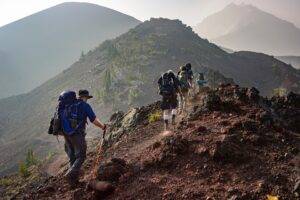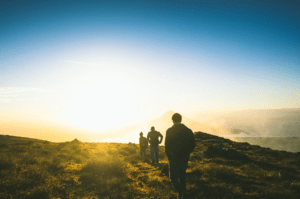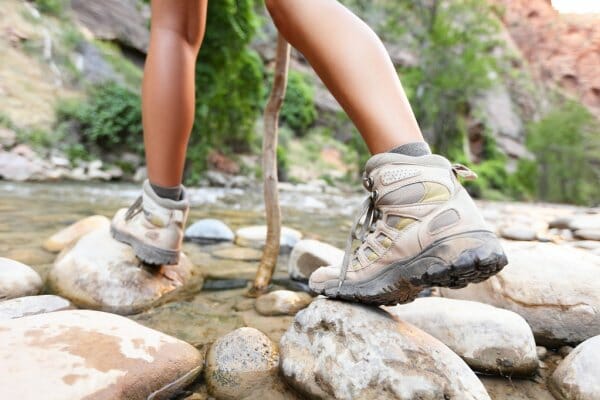
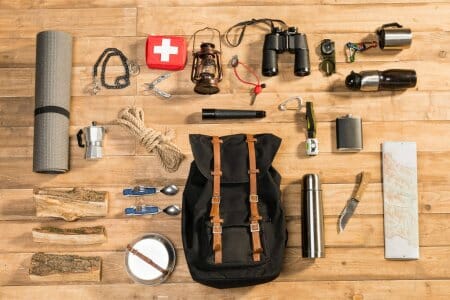
Hiking has many benefits for people of all ages, especially those with busy schedules. It is the best way to get away from your books, work, and stressful life and refresh. Hiking and Camping help relieve stress, learning life skills for teenagers and kids, and the best form of exercise. Below are tips on essentials that you should never forget to pack when preparing for a hike. Remember that hiking and Camping have their downfalls and it would be great to be ready for them. It is advisable to have a hiking gear list and cancel everything you have packed to have the best experience during this amazing adventure.
Warm Clothing

Nature can sometimes decide to surprise you during those days; you have decided to cancel hiking from your to-do list. Mountains are unpredictable, and you might dress light because it is a sunny or hot day outside only to regret leaving that raincoat behind. It is advisable to check the weather forecast before leaving for the hike. Checking before you leave the house will help you determine whether it is a good idea to go or to cancel. Dress in layers to be safe so that you can adapt to the changing weather. The weatherman is sometimes wrong, and using the forecast alone might cost you a good experience and even get you sick. Pack an extra warm something to add to what you have a scuff, gloves, and a hat. Finally, you should avoid cotton material like the plague because they get wet and stay that way. Do not let the weather or job-seeking deter you from having fun. Get a resume from https://resumethatworks.com/cv-editing-service and relieve yourself of the stress.
Food and Water
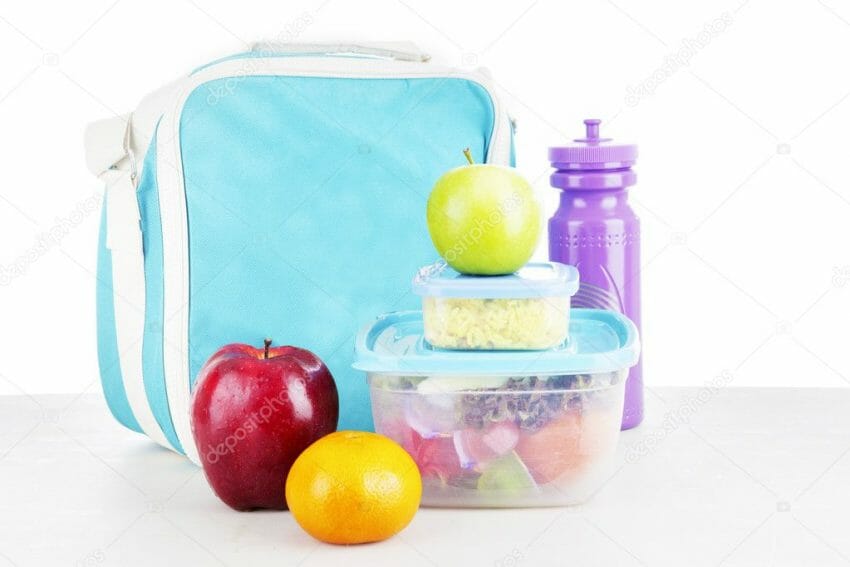
The two are the most hiking essentials to carry to a hike because you need to stay hydrated and full of energy. Water is essential; that is why you should determine the amount you are taking depending on the length of the hike. It is also an important hydrate way before the journey to avoid feeling full before you start and dehydrated soon after you start. When it comes to food, practice proper food hygiene, and stay away from perishable ones, especially during a hot day. Wash hands regularly, do not mix foods, and consider the packing materials. Order more tips on food hygiene from https://perfectessay.com/.
- Carry an extra portion of food in case your hike stays longer than you expected
- If you are sure of a source of freshwater, opt for an empty bottle to lighten the luggage
- For a lighter load, you can also opt for dry food, snacks, fruits, veggies and energy bars
Location map
With the invention of technology came phone apps and GPS. Depending on the place you are going, the two methods can either be helpful or fail terribly. Some areas have no access to GPS, while others have no internet access. A paper map is always essential, while the other two can act as back up to caution you from getting lost. Even on familiar terrain, you might lose your way due to overgrown vegetation. Make sure it is the first essential to tick off your hiking checklist. It is vital to consider the following when you get lost
- Keep the map in a dry place and make sure you do not lose it
- Tell someone beforehand including details of where you will be
- Hike in groups or have a friend with you
- Do prior research on the areas and if possible study the map
Aid kit
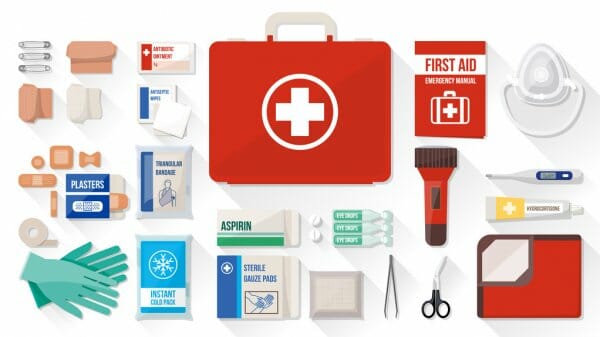
A first Aid kit is must carry when going out for a hike because of the downsides that come with the adventure. However, carrying a kit that you do know how to use might not be helpful. Before the hike or Camping, take some lessons online or physically. It is also vital to research the dangers you can face in the mountains and include everything in the kit. Also, consider walking in groups help when you need first aid. They may include
- Snake and insect bites
- Injuries from falling and sprints
- Getting trapped or scratches from bushy terrains
- Forces of nature such as heat rash
Sun protection items
The sun can be brutal, especially when you have not planned for it. The mountains are quite different from enjoying the sunshine at home. There is much open space, and finding a shade might be quite challenging. However, sunny days provide a better chance to explore than rainy days if you prepare adequately from them. It would help if you planned to avoid the heat rash, fainting, getting dehydrated, blindness, and other damages to the body. The following are the best hiking gears protect you from the sun:
- Sunglasses to protect the eyes and avoid blindness
- Sunscreen to protect your skin from the dangerous sun rays
- Light long sleeve and long pants to protect hands and legs
- Wide hats to protect the head and face from sun rays
- Umbrellas and shelters to rest in during sunny days
Fire
Sometime hikes might take longer than expected; that is why you need a shelter and a source of light and fire equipment in your backpack. The light will help you find your way home when it gets dark, and the fire comes in handy when you get stuck too far from home, and you have to camp till morning, knowing how to start a fire especially during bad weather will set you apart from other unprepared hikers and might save your life. Bring lighter and other items that would make starting a fire quite easy. The fire is beneficial for warmth, light, keeping away animals, and insects. However, it would help if you considered all fire safety measures while outdoor to avoid hazards.
Trekking Shoes or Hiking Boots

Finally, the type of shoes you wear will determine if you get to the end of your hike. Boots are the most common best hiking gear because of their resilience in rough terrains. The shoes are to provide your feet with protection during these tough conditions, that is why you should ensure all factors are in place. Caring another pair of shoes beat the logic of carrying a lighter bag pack; that is, your hiking type of footwear should be durable. Get more tips from pre-written college essays. Make sure that the shoes are:
- Well-fitting to avoid blisters
- Comfortable to enable walking for long hours
- Lightweight so that they do not weigh you down
- Waterproofness in case of mist or water sources
- The shoe should be stable, so that retains its shape to the end
Concisely, it is a tough call ensuring to carry all the essentials above while keeping the luggage as light as possible. As tempted, as you will be to leave some of the things behind, please do not. It is better to regret carrying warm clothes around all day than leave it and get sick. Becoming a pro and determining what works best for you can only come out of the experience. Start with a few miles and work up with the best advice being training with your bag pack so that you get used to the weight. Remember to get the right backpack, place in it the right essentials, pack it perfectly, and you are good to go.

